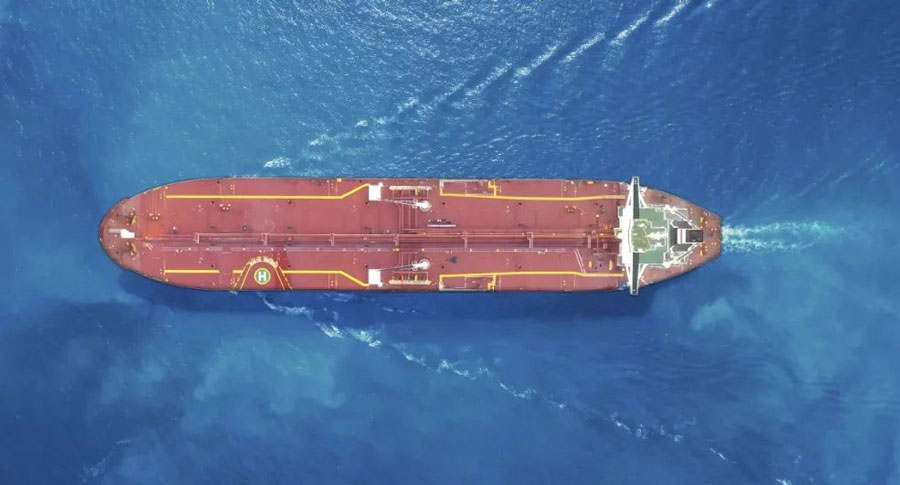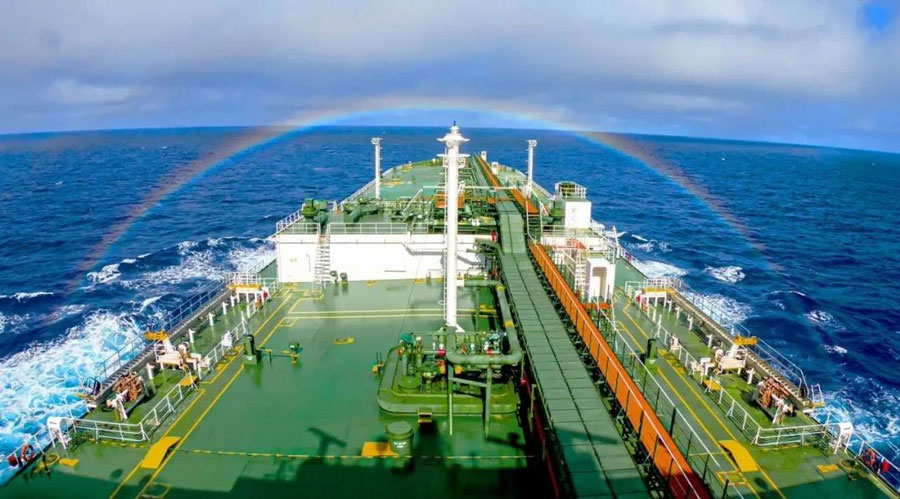

Analyst: 2024 oil tanker stocks bleak, next January or reverse!
2024 has been a disappointing year for tanker stock investors. With the general decline in the shipping sector, and weakness in tanker stocks in particular, many investors failed to meet their expectations for returns during the year. However, analysts at Clarkson Securities believe that January could usher in a different market scenario, especially when it comes to the opportunities investors may get by buying "oversold" stocks.
Over the past few months, the performance of tanker stocks has been disappointing, with Clarkson Securities data showing that shipping stocks as a whole are up just 2 percent so far in 2024, while product ships are down 16 percent and crude oil tankers are down 10 percent. While car carriers and container carriers are up more than 30% each, overall shipping stocks have clearly underperformed the broader stock market. The S&P 500, for example, is up 29% so far.
Amid this market sentiment, some investors chose to sell oil tanker stocks, especially at the end of the year, in order to take advantage of tax breaks. However, this sell-off also sets the stage for the classic "January effect," in which investors can step in when prices are low in the hope of a rebound in the New Year.
Analysts at Clarkson Securities believe that given the current pessimism in tanker stocks, this strategy could be particularly attractive in the coming months, especially if investor sentiment changes and could lead to higher returns.
However, the weakness in the tanker spot market has continued, with modern VLCC spot rates falling another 9 per cent last week to around $30,000 per day, showing that the market remains lacklustre.
Behind this downturn is the compression of refining margins and the fall in forward oil prices, leading to a general malaise in market activity. In November, global crude oil trade fell 2.5 percent from a year earlier, according to Clarkson.
Clarkson Securities analysts believe that this situation may bring about contango in the futures market, that is, forward oil prices are higher than spot oil prices, which in turn has a positive impact on charter activity in the tanker market.
Over the past few months, the performance of tanker stocks has been disappointing, with Clarkson Securities data showing that shipping stocks as a whole are up just 2 percent so far in 2024, while product ships are down 16 percent and crude oil tankers are down 10 percent. While car carriers and container carriers are up more than 30% each, overall shipping stocks have clearly underperformed the broader stock market. The S&P 500, for example, is up 29% so far.

Amid this market sentiment, some investors chose to sell oil tanker stocks, especially at the end of the year, in order to take advantage of tax breaks. However, this sell-off also sets the stage for the classic "January effect," in which investors can step in when prices are low in the hope of a rebound in the New Year.
Analysts at Clarkson Securities believe that given the current pessimism in tanker stocks, this strategy could be particularly attractive in the coming months, especially if investor sentiment changes and could lead to higher returns.

However, the weakness in the tanker spot market has continued, with modern VLCC spot rates falling another 9 per cent last week to around $30,000 per day, showing that the market remains lacklustre.
Behind this downturn is the compression of refining margins and the fall in forward oil prices, leading to a general malaise in market activity. In November, global crude oil trade fell 2.5 percent from a year earlier, according to Clarkson.

Clarkson Securities analysts believe that this situation may bring about contango in the futures market, that is, forward oil prices are higher than spot oil prices, which in turn has a positive impact on charter activity in the tanker market.





